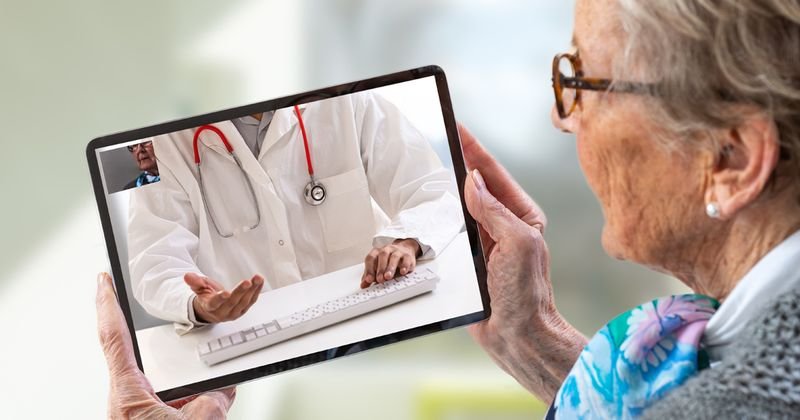Telehealth kidney care delivery has been transformed significantly by the application of telehealth and technology. Patients in Ardmore, OK, and Gainesville, TX, can now access the services of nephrologists without traveling. Online health portals and wearable monitors are digital tools that allow physicians to monitor their progress, analyze laboratory findings, and provide real-time help. The strategy enhances the convenience, safety, and confidence of the patients.
What Is Telehealth in Contemporary Kidney Care?
Telehealth kidney care involves virtual visits and distance monitoring as effective methods of kidney care management. Patients are able to communicate about the symptoms, monitor medications, and exchange lab results at home. Remote monitoring devices assist nephrologists in monitoring blood pressure and kidney activity at all times. Telemedicine will save time and expenses of traveling, as well as offer patients timely guidance, enhancing the results and quality of life.
Technology Increasing the Nephrology Services
It becomes very easy to make online appointments and keep track of patients remotely with technology. Vital signs can be monitored by mobile health apps, and patient portals provide access to laboratory results, which is safe. These tools assist patients in adhering to care plans. Telehealth kidney care links nephrologists and patients who could fail to visit early enough to help in diagnosing kidney issues and enhancing treatment compliance.
Machines and Equipment in the Modern Management of Kidneys
Smart blood pressure devices and other wearable monitors assist physicians in monitoring patient changes or alerts. Patient information is stored in Electronic Health Records (EHR). Messaging and appointment requests can be done through health portals. The combination of these tools produces an integrated care system. Patients are supported and informed; therefore, complications are minimized, and therapeutic adherence is encouraged to enhance telehealth kidney care.
Virtual Visit Management of CKD
The virtual visit enables patients to take care of Chronic Kidney Disease Management at their homes. Post-discharge follow-ups, medication changes, and review of laboratory results occur online. Patients on dialysis are able to talk to care teams without going out. Such appointments ensure continuity, enhance compliance, and eliminate complications. Telehealth kidney care gives patients the power to be active in the treatment procedure to help them attain long-term kidney care and independence.
Advantages of Consultations via the Internet in Patients under Dialysis
Video check-ins, remote care coordination, and symptom tracking are provided to patients undergoing home dialysis. Physicians have an opportunity to modify treatments in real time. Patients are instructed on diet, fluids, and medications, which minimize visits to the hospital. Constant medical attention enables the prompt identification of complications, to provide a safer environment of kidney care at home.
Telehealth Enhances the Patient-Nephrologist Communication
Portals and messaging are used to allow patients to communicate with the doctor as quickly as possible. Patients are capable of sharing symptoms, laboratory results, and vital signs in real-time. Nephrologists can quickly adjust treatment plans accordingly. Improved communication brings about trust and early intervention, reducing the chances of increasing kidney problems. Frequent revisions help patients stay active, enhancing kidney care results.
Artificial Intelligence Improving Kidney Health
The AI tools assist nephrologists in processing patient data, anticipating disease progression, and providing preventive measures. Predictive analytics can predict problems that need to be addressed before they turn acute. Machine learning aids clinical decisions, enhancing accuracy and personalization. Through AI, physicians can treat chronic illnesses, optimize treatment, and enhance the safety and quality of kidney care.
The Challenges of Telehealth for Kidney Patients
Telehealth kidney care requires a stable internet connection, basic tech skills, and attention to privacy concerns. The accuracy of the devices can be questionable, and not all patients will be able to cope with the setups. These barriers are overcome by education, technical support, and trusted platforms. Patient training will make them confident in telehealth, making the use of it to monitor patients and provide long-term kidney care effective.
Telehealth Services in Southern Oklahoma Kidney Center
Southern Oklahoma Kidney Center is a leading example of patient care using telehealth methods. Nephrologists use virtual visits, control and check vitals remotely, and deliver learning materials. Customized schedules guarantee continuity to both rural and urban patients. Technology facilitates real-time data exchange and quick response to modifications, assisting patients in having reliable and professional support in kidney care.
To Make a Telehealth Appointment
SouthernOKC allows patients to use the online portal or request form to book a virtual visit. The team guarantees the ease of scheduling a visit, timely feedback, and individual advice. Telehealth kidney care enhances accessibility and enables patients to be safe in taking care of their kidneys at home. Long-term protection for patients with Chronic Kidney Disease Management for all patients is achieved through early intervention and constant monitoring.





